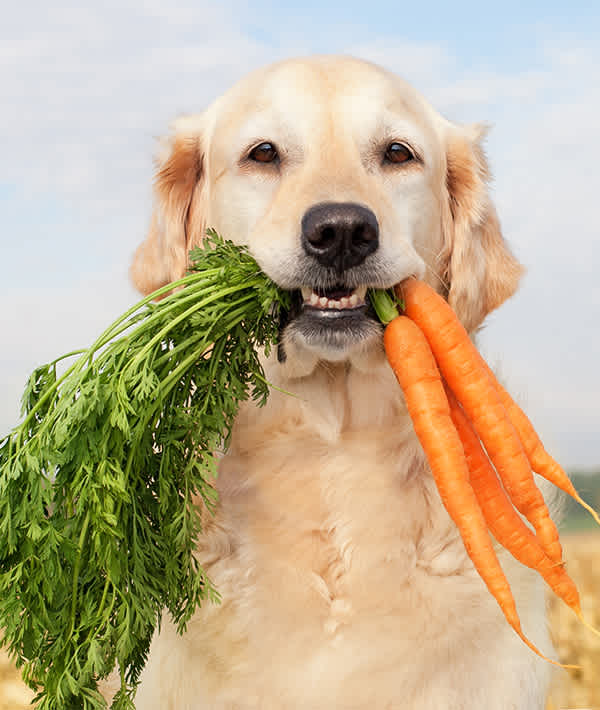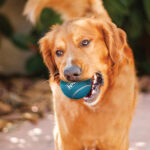
Golden Retrievers are one of the most beloved dog breeds in the world, known for their friendly demeanor, intelligence, and boundless energy. Ensuring that your Golden Retriever puppy gets the right nutrition is crucial for their healthy growth and development. This guide will help you understand the best diet and feeding practices for Golden Retriever puppies, so they can thrive from an early age.
Why Nutrition Matters for Golden Retriever Puppies
Proper nutrition is the foundation of your puppy’s health. Golden Retrievers, like all dogs, have specific dietary needs that must be met to support their rapid growth, bone development, and overall well-being. Inadequate or imbalanced nutrition can lead to a host of health problems, including skeletal issues, obesity, and weakened immune systems.
Key Nutritional Needs for Golden Retriever Puppies
High-Quality Proteins
Proteins are the building blocks of muscles and tissues. Golden Retriever puppies require high-quality protein sources to support their rapid growth and muscle development. Look for puppy food that lists meat, fish, or poultry as the primary ingredient. These animal-based proteins provide essential amino acids that are crucial for your puppy’s development.
Controlled Levels of Fat
While fats are essential for your puppy’s development, it’s important to control their intake to prevent excessive weight gain. Essential fatty acids, such as Omega-3 and Omega-6, promote healthy skin and a shiny coat. Fish oil and flaxseed are excellent sources of these fatty acids.
Balanced Calcium and Phosphorus
Golden Retriever puppies need balanced levels of calcium and phosphorus for proper bone growth. Too much or too little of these minerals can lead to skeletal issues. Specially formulated puppy foods are designed to provide the right balance of calcium and phosphorus to support healthy bone development.
Essential Vitamins and Minerals
A variety of vitamins and minerals are necessary for your puppy’s overall health and immune system support. Vitamins A, D, E, and B-complex are particularly important for growth, vision, and skin health. Minerals such as zinc and iron are also crucial for energy metabolism and immune function.
Specially Formulated Puppy Food
Puppy-specific formulas are designed to meet the higher energy and nutritional needs of growing puppies. These foods are typically richer in calories, protein, and essential nutrients compared to adult dog food. Always choose a high-quality puppy food that meets the nutritional standards set by organizations such as the Association of American Feed Control Officials (AAFCO).
Foods to Avoid
Certain human foods can be harmful or even toxic to dogs. Avoid feeding your Golden Retriever puppy chocolate, grapes, raisins, onions, garlic, and anything containing the artificial sweetener xylitol. These foods can cause serious health issues, including kidney failure and neurological problems.
Recommended Feeding Schedule for Golden Retriever Puppies
Feeding schedules should be tailored to your puppy’s age and growth stage. Here are some general guidelines:
Puppies Under 6 Months
Feed your puppy 3-4 meals per day. Their rapid growth and high energy levels require frequent, balanced meals to keep them fueled throughout the day.
Puppies 6-12 Months
At this stage, you can reduce the feeding frequency to 2-3 meals per day. Their metabolism is starting to slow down, and they don’t need to eat as often as younger puppies.
After 1 Year
Gradually transition to an adult feeding schedule, typically 1-2 meals per day. Adjust the portion sizes based on your dog’s individual needs and activity level.
Always provide access to fresh, clean water to keep your puppy hydrated.
Tips for Feeding Your Golden Retriever Puppy
- Measure Portions: Use a measuring cup to ensure you’re giving the right amount of food. Overfeeding can lead to obesity, while underfeeding can result in malnutrition.
- Monitor Weight: Regularly check your puppy’s weight and adjust the portion sizes as needed. Consult your veterinarian if you’re unsure about your puppy’s ideal weight.
- Stick to a Routine: Feed your puppy at the same times each day to establish a routine. Consistency helps with digestion and can prevent overeating.
- Exercise Caution with Treats: While treats are great for training, they should not make up more than 10% of your puppy’s daily caloric intake. Opt for healthy, low-calorie treats.
- Transition Gradually: When switching to a new food, do so gradually over a week to prevent digestive upset. Mix increasing amounts of the new food with the old food each day.
Conclusion
Providing your Golden Retriever puppy with the right nutrition is essential for their healthy growth and development. By understanding their specific dietary needs and following a structured feeding schedule, you can set the foundation for a happy, healthy life. Remember, every puppy is unique, so it’s always a good idea to consult your veterinarian for personalized advice. Ready to take the next step in ensuring your puppy’s health? Schedule a consultation with one of our expert pet nutritionists today and get personalized recommendations for your Golden
Frequently Asked Questions (FAQ)
1. What type of protein is best for Golden Retriever puppies?
High-quality animal-based proteins such as chicken, beef, fish, and lamb are best for Golden Retriever puppies. These proteins provide essential amino acids needed for growth and muscle development.
2. Can I feed my Golden Retriever puppy human food?
It’s best to avoid feeding your puppy human food, as some can be harmful or toxic. Stick to specially formulated puppy food to ensure they receive balanced nutrition.
3. How can I tell if my puppy is overweight?
You should be able to feel your puppy’s ribs without pressing too hard, and they should have a visible waist when viewed from above. If you’re unsure, consult your veterinarian for guidance.
4. When should I switch from puppy food to adult food?
Typically, you should switch to adult food when your Golden Retriever reaches 12 months of age. Consult your veterinarian to determine the best time for your specific dog.
5. How much water should my Golden Retriever puppy drink?
Puppies need plenty of water to stay hydrated. Ensure they always have access to fresh, clean water. A general guideline is about 1 ounce of water per pound of body weight per day, but this can vary based on activity level and environmental factors.








